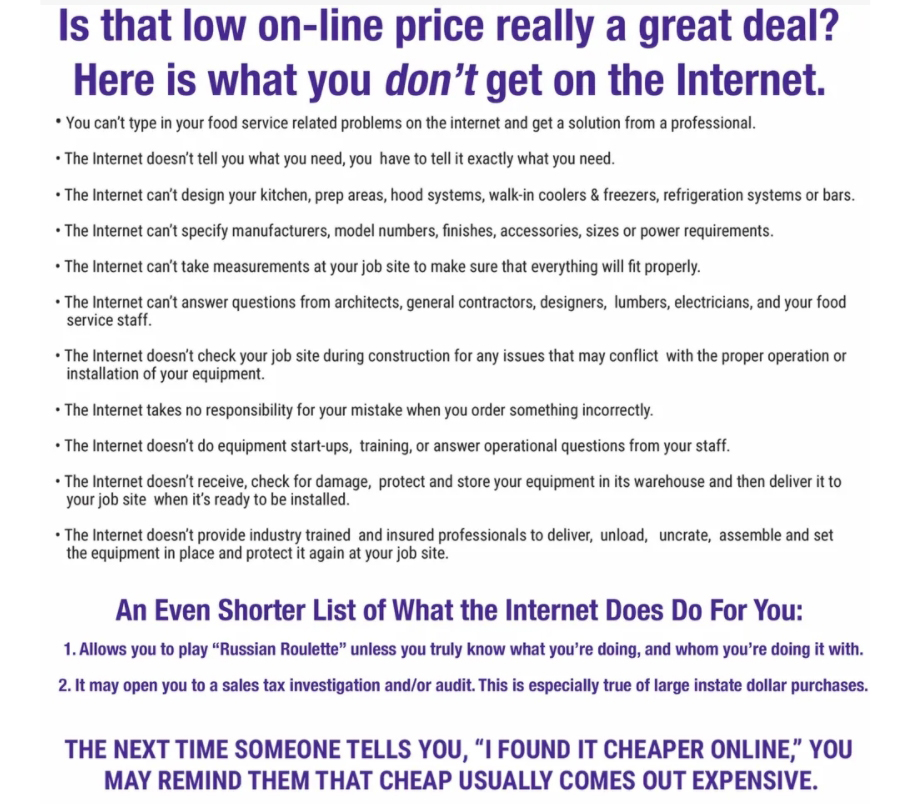FREQUENTLY ASKED QUESTIONS
Certified And Trained, We Are Here To Help
No upfront capital cost to you. Rental machines include preventative maintenance services performed at regular intervals to help ensure efficient operation and no down time.
Check to see if your condenser coils are dirty or blocked. These must be clean and have unrestricted airflow.
Check your thermostat. Cooling should never be set below 70 degrees.
Check the incoming water pressure when the unit is filling with water. This must be above 10PSI. Check to ensure the water has not been turned off. Check to ensure there has not been an interruption in electrical power.
Is there ice build up on the back of the evaporator? If ice, has the door been left open for an extended period, such as delivery? If ice, then turn off the fans and allow the ice to defrost then restart the unit and see what happens.
Always check breakers first. If the unit is a standard 120V cord and plug, try another receptacle. Don’t forget to check the GFCI receptacle.
Develop a simple, concise menu that you can excel at preparing.
We can act as your liaison in negotiating with the Health Department to protect YOUR interests.
Make sure you have adequate Electrical Power to the machine. If you do, then confirm you have adequate water flow. Check you Filtration System (if you don’t have one, you are taking REAL chances!) for blockage by testing the water flow BEFORE the filter.
Many units carry as much as 3 years warranty. If not, our experienced staff can GUIDE you with pricing options, from analysis of repairing your existing microwave to potential replacement costs.
That is based on a number of factors including your local utility rates, hours of usage, cooking capacity requirements, etc. Feel free to call one of our experienced consultants to help GUIDE you to a solution.
12 to 15 years Commercial, 15-17 years Residential when properly serviced.
No, providing repair costs do not exceed ROI.
EPA regulations are phasing out the manufacture of R22 refrigerants thus, costs have skyrocketed.
PM programs allow provide for reduced operating cost and early detection of worn and failing parts.
Yes, this is the preferred method which preserves equipment warranty and ensure operations are within manufactures recommendations.


